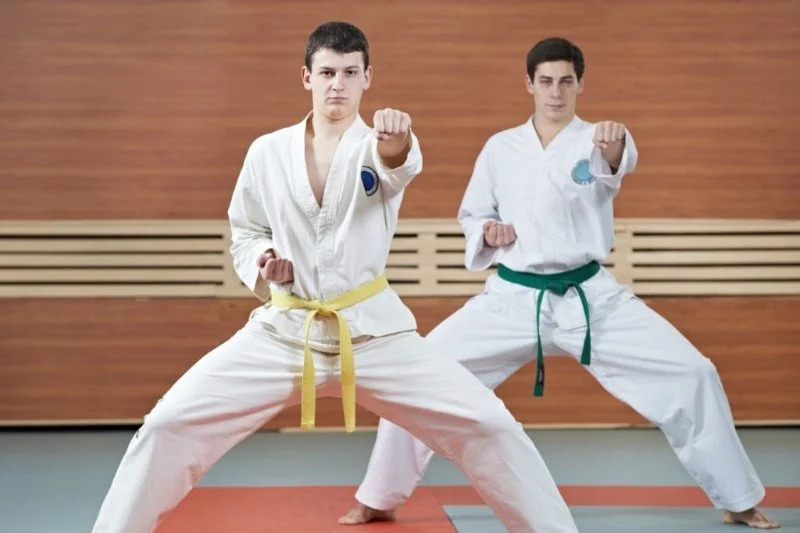
- 1- Introduction to Martial Arts: Tae Kwon Do vs. Karate
- 2- The History and Origins of Tae Kwon Do and Karate
- 3- Key Techniques in Tae Kwon Do and Karate
- 4- The Philosophy and Principles Behind Each Martial Art
- 5- Which Martial Art is Right for You?
1- Introduction to Martial Arts: Tae Kwon Do vs. Karate
Martial arts are a popular choice for individuals seeking physical fitness, self-defense, and mental discipline. Among the many styles practiced worldwide, Tae Kwon Do and Karate are two of the most well-known. While they share some similarities, there are key differences that make each martial art unique. In this article, we will explore the main differences between Tae Kwon Do and Karate to help you decide which one is right for you.

Paul Prendergast Karate / paul prendergast
Brick TownshipOcean CountyNew Jersey
950 Cedar Bridge Ave, Brick Township, NJ 08723, USA
2- The History and Origins of Tae Kwon Do and Karate
The origins of both Tae Kwon Do and Karate lie in ancient martial arts traditions, but they developed in different parts of the world and under different cultural influences. Understanding their histories can help you appreciate their unique features.

Giroux Bros Martial Arts / giroux brothers
WilbrahamHampden CountyMassachusetts
2400 Boston Rd, Wilbraham, MA 01095, USA
2.1- The History of Tae Kwon Do
Tae Kwon Do originated in Korea in the 1950s, though it draws on older Korean martial arts like Taekkyeon and Hwa Rang Do. The art focuses on powerful, high-energy kicking techniques and emphasizes agility, speed, and flexibility. Tae Kwon Do is a modern martial art that has gained global recognition, particularly for its emphasis on sport and competition.
2.2- The History of Karate
Karate has its roots in Okinawa, Japan, and is influenced by the martial art of Chinese Kung Fu. The art was refined in the early 20th century by masters such as Gichin Funakoshi, who emphasized both self-defense and the development of mental discipline. Karate focuses on a combination of punches, kicks, and strikes, and it has a strong emphasis on kata (pre-arranged forms or patterns) for training and competition.
3- Key Techniques in Tae Kwon Do and Karate
Both Tae Kwon Do and Karate feature a variety of powerful techniques, but they differ in the types of movements and their applications. Here's a look at the main techniques in each martial art:
3.1- Techniques in Tae Kwon Do
Tae Kwon Do is famous for its high, fast kicks and emphasis on leg techniques. Some key techniques include:
- High spinning kicks
- Flying kicks
- Roundhouse kicks
- Back kicks
Tae Kwon Do practitioners focus on speed, flexibility, and agility in their kicking techniques. The sport is dynamic and visually impressive, with an emphasis on kicking techniques in competitive sparring.
3.2- Techniques in Karate
While Karate also includes a variety of striking techniques, its emphasis is more on punches, blocks, and powerful stances. Key techniques in Karate include:
- Straight punches (Tsuki)
- Low, middle, and high blocks
- Elbow strikes
- Front kicks (Mae Geri)
Karate practitioners train in different stances and forms (kata) to improve strength, precision, and power in their strikes. Karate tends to be more rooted in traditional forms of martial arts compared to the sport-oriented nature of Tae Kwon Do.
4- The Philosophy and Principles Behind Each Martial Art
While both martial arts focus on self-discipline, respect, and mental focus, their underlying philosophies differ in significant ways:
4.1- Philosophy of Tae Kwon Do
Tae Kwon Do is rooted in the principles of respect, perseverance, and integrity. The philosophy of Tae Kwon Do emphasizes the importance of self-defense, using martial arts skills for good rather than violence. The Korean tradition also integrates spiritual development, with practitioners encouraged to show respect to others and to continually work on their personal growth.
4.2- Philosophy of Karate
Karate is based on the idea of "karate-do," meaning "the way of the empty hand." This philosophy centers on self-improvement, mental clarity, and controlling one's emotions. Karate emphasizes the importance of humility and maintaining a calm mind in all situations. It also teaches practitioners how to defend themselves while maintaining a strong moral compass and respect for others.
5- Which Martial Art is Right for You?
Choosing between Tae Kwon Do and Karate largely depends on your personal goals and preferences. Consider the following factors when deciding which martial art to pursue:
5.1- For Athletic Performance and Fast Kicks: Choose Tae Kwon Do
If you're looking for a dynamic martial art that emphasizes high-energy movement, speed, and powerful kicks, Tae Kwon Do may be the right fit for you. This martial art is particularly beneficial for those interested in improving their flexibility, coordination, and cardiovascular health. It's also a great choice if you're interested in participating in competitive sparring or sport-based martial arts.
5.2- For Strength and Mental Discipline: Choose Karate
If you're more interested in a martial art that focuses on mental discipline, strength, and self-control, Karate may be a better choice. Karate emphasizes powerful strikes and strong stances, and it integrates kata as a way to build both physical strength and mental focus. It's an excellent choice for those looking to develop both their body and mind through a traditional martial arts approach.
5.3- Which Martial Art is More Suitable for Self-Defense?
Both Tae Kwon Do and Karate can be effective for self-defense, but they approach it differently. Tae Kwon Do focuses heavily on kicking techniques that can help you escape dangerous situations quickly, while Karate places more emphasis on close-range defense and striking techniques that can incapacitate an opponent. Ultimately, both can be valuable for self-defense, but Karate may offer more practical techniques for real-life confrontations.
In the end, the best choice depends on what you're looking for in your martial arts practice. Whether you choose Tae Kwon Do or Karate, both will help you build confidence, discipline, and fitness. Visit Jeuns TKD Hub to explore the best training options and find the perfect fit for your martial arts journey.

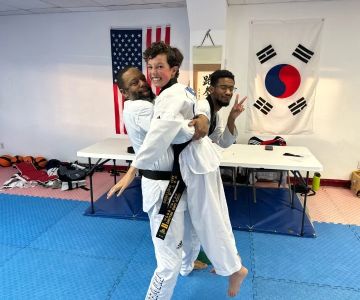
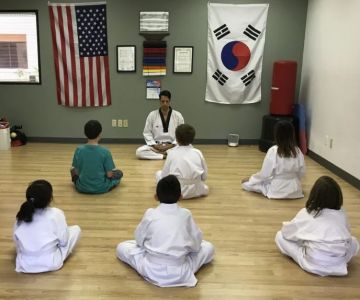
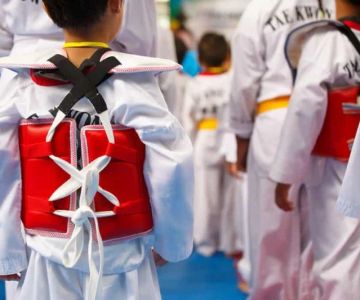
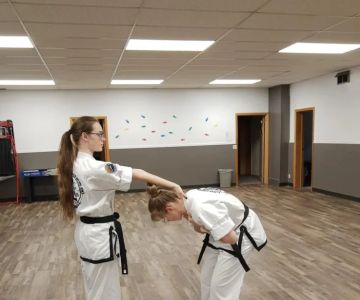
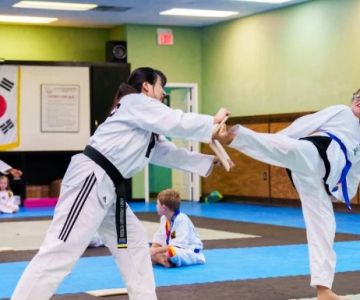
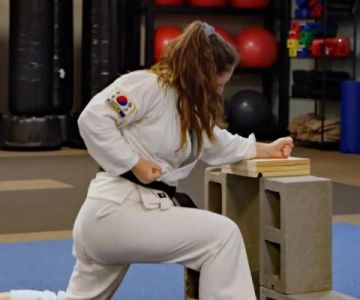
 Academy of Hapkido Taekwondo Corona4.0 (16 reviews)
Academy of Hapkido Taekwondo Corona4.0 (16 reviews) Hybrid Academy of Mixed Martial Arts5.0 (7 reviews)
Hybrid Academy of Mixed Martial Arts5.0 (7 reviews) The Arena0.0 (0 reviews)
The Arena0.0 (0 reviews)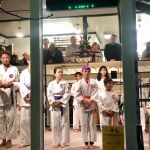 West Wind Karate Kung-Fu School5.0 (4 reviews)
West Wind Karate Kung-Fu School5.0 (4 reviews) Cephas Karate-Jujitsu Elite5.0 (15 reviews)
Cephas Karate-Jujitsu Elite5.0 (15 reviews) Villari's Self Defense Center5.0 (16 reviews)
Villari's Self Defense Center5.0 (16 reviews)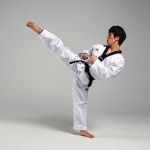 How to Execute a Jumping Roundhouse Kick to the Head
How to Execute a Jumping Roundhouse Kick to the Head How to Execute a Double Kick Combination in Sparring
How to Execute a Double Kick Combination in Sparring How to Perform a Flawless Axe Kick: A Step-by-Step Guide
How to Perform a Flawless Axe Kick: A Step-by-Step Guide DIY Tae Kwon Do Training Equipment for Home Practice
DIY Tae Kwon Do Training Equipment for Home Practice How to Increase Your Vertical Jump for Tae Kwon Do Flying Kicks
How to Increase Your Vertical Jump for Tae Kwon Do Flying Kicks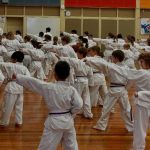 The History of the Tae Kwon Do Peace Corps
The History of the Tae Kwon Do Peace Corps